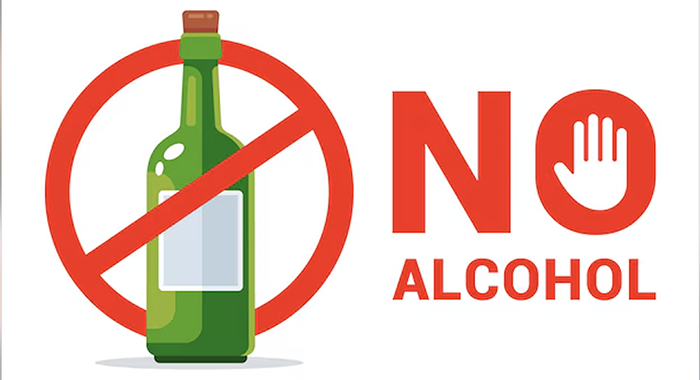Parliament on Monday passed a new law banning the consumption of alcohol during funeral processions even as Prime Minister Ralph Gonsalves listed several similar laws that are not being enforced.
Gonsalves, who piloted the Public Order (Amendment) Bill, 2024, noted that the existing law includes offences related to drunkenness and debasing religion.
He said successive legislators have been concerned about debasing religion and about drunkenness in public places.
“It was never thought that in our St. Vincent and the Grenadines, the joyful celebration would include actually drinking rum in the procession. And this is a bridge which has now been crossed,” the prime minister said.
He noted that it is an offence for any person to be drunk in any public place or upon any premises licensed for the sale of alcohol.
On the first conviction, such a person can be fined EC$50 and a second or subsequent conviction, EC$100.
“And if you have a subsequent conviction within a period of 12 months after the second or subsequent conviction, you’re liable to get three months [in prison],” the prime minister said.
“Look, it’s one thing in a public place, you’re drinking alcohol, you at the bar, naturally, you’re drinking it. But don’t get drunk there, because there’re these offences,” Gonsalves said.
He pointed out that these laws existed before they were reformed and codified under the New Democratic Party administration — which was voted out of office in March 2001.
“I’m putting down all the markers,” Gonsalves said, further stating that it is an offence to insult any religion.
The law says any person who destroys, damages or defiles any place of worship or any object that is held sacred by any group or class of persons with the intention thereby of insulting the religion of those persons, or with the knowledge that any group or class of persons is likely to consider such destruction, damage or defilement as an insult to their religion is liable to imprisonment for up to five years.
Gonsalves further noted that a person can be jailed for two years for disturbing a religious assembly.
“And if persons talk to you about it and you still persist, you can get up to five years,” he said, adding that writing or altering words with intent to wound religious feelings can result in a two-year jail term.
For hindering a burial, someone can be jailed for up to two years, the same sentence for trespassing on a burial place.
“Our ceremonies which we have are with funeral possessions. Funeral processions in our culture are accompanied, having come from a church, a religious ceremony and go into a resting place, with a religious ceremony,” Gonsalves said.
“I’m only setting the context that our civilisation has taken religion with some solemnity, and they have had, as I outlined, the section in relation to drunkenness, section 288, that you can be fined.”
He pointed out that in relation to drunkenness, a person found drunk in a public place where they are in charge of any vehicle or animal or in possession of a firearm is liable to up to one year in prison.
“These are established offences and which have, as I said, been codified, included under the past administration, and they have been on the statute books.
“Now, to the best of my knowledge, … the years I practice in the law, I don’t know that the police have charged somebody with drunkness in a public place. The police will go and say, ‘Come, man. Come and go home. You’re misbehaving yourself.’ And, invariably, the person will go.”
The prime minister said the person would comply even if they are a little resistant.
“Other persons will take them. Of course, if they assault the police officer, the police may charge them for assault and battery,” Gonsalves said.
“So, I established that there’s a context where our civilisation, our people, enjoy yourself, have fun but there are some bridges you don’t cross, metaphorically. And this one now is.
“… by all means, play your music, do your jumping, do your singing, but don’t turn it into an occasion for rum-drinking. It’s as simple and straightforward as that.”
The prime minister also pointed out that there were offences related to sending chain letters.
“I’m talking about nuisance and other offences against the public in general, adding that the law to ban the consumption of alcohol in funeral processions is another such nuisance offence.
“… but it’s under the Public Order Act because that’s the best way to place it.”
Gonsalves further noted that the Criminal Code includes offence in relation to obscene publications and idle and disorderly persons.
He noted that the law also criminalises wandering abroad to beg, pretending to deal in obeah, witch or telling fortunes by palmistry or like superstitious means; solicitation for any immoral purpose; playing games, or pretended game of chance for money or money’s worth; and, among other, having no fixed place of abode and sleeping by night in open or public places, each of which attracts a maximum penalty of three months’ imprisonment.
“No one really charges anybody for these things, but they are there on the books where an orderly, civilised society said, ‘Listen, we shouldn’t be having this sort of a thing,” Gonsalves said.
He told lawmakers there were other offences that he did not want to go into, including those related to “Rogues and vagabonds”.
He noted that the law also speaks to disorderly conduct and abusive, blasphemous, indecent, insulting, profane or threatening language.
“Well, the number of times people curse, use decent language in a public place and the police don’t bother them,” Gonsalves said, adding that the police would give the person a verbal warning.
“It’s part of the social control mechanisms for us to do things which are on balance will be reasonable in all the circumstances… It engenders a sense that look we need to have a little bit more ordered and disciplined, particularly in situations which are sacrosanct, which are solemn.”
Gonsalves said solemnity doesn’t mean not singing, playing a steel band, playing music, beating drums, or dancing during a funeral procession.
“All that is perfectly in order, or most right-thinking persons would say, and that has been done from time immemorial. But it is this new thing which has come about,” he said, adding that he hoped that the whole Parliament would support the bill.
“… the religious community have been asking about this and Parliament is responding,” the prime minister said.
“There was in the original bill, which has been excised, extending it to the cemetery. The problem with that, the way the cemeteries are located, is difficult.”
The 13 government lawmakers who were present when the vote was taken supported the bill.
Opposition Leader Godwin Friday who had spoken against the law was absent when the vote was taken.
None of the five opposition lawmakers present during the vote supported the bill.







The old man sound as if he does just dream up these things when he on leisure. The dying 78 year old marxist is totally out of step with reality. Time to time he shows us he is in charge by restricting us in some way or creating distractions. We are not fooled, we know these things are sleazy moves which references something else other than what it appears to be addressing. Check it out. Go man RIP.
When are we going to get similar laws for the way parliamentarians behave in parliament? That is more distasteful.
Another attempt restricting people’s rights. Do as much as you want but not as long
Prohibition a la Gonsalves. What a lala.